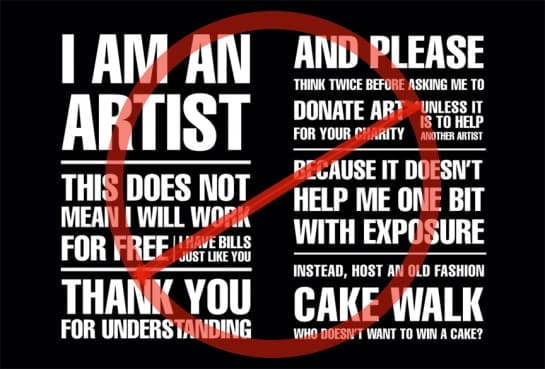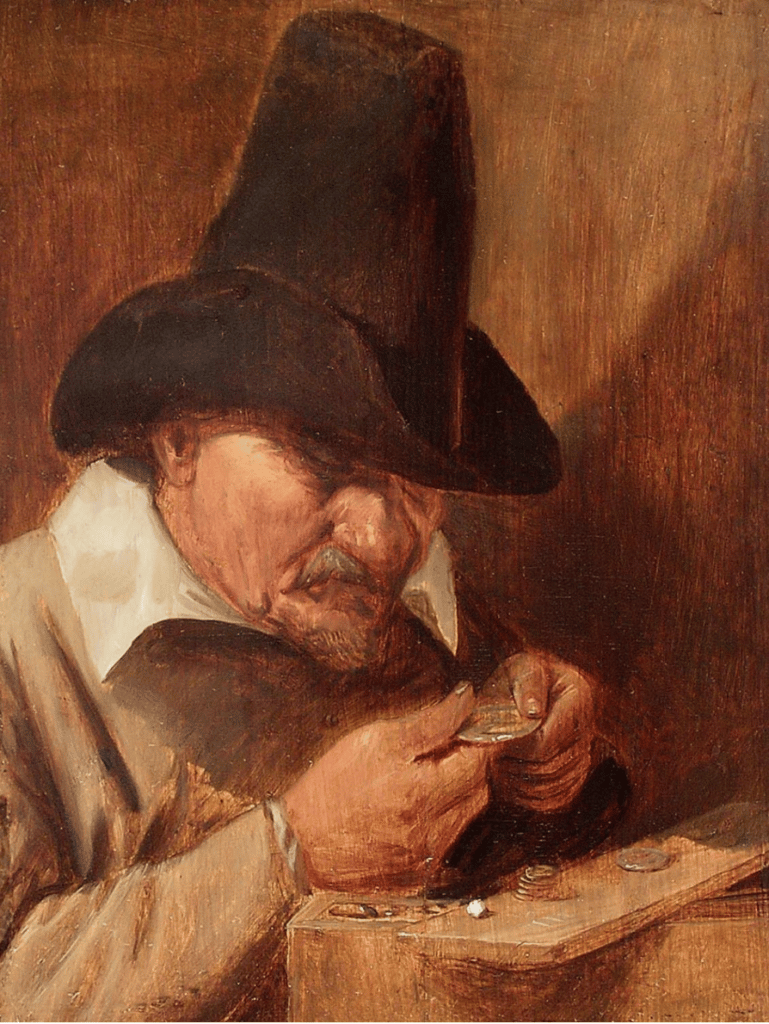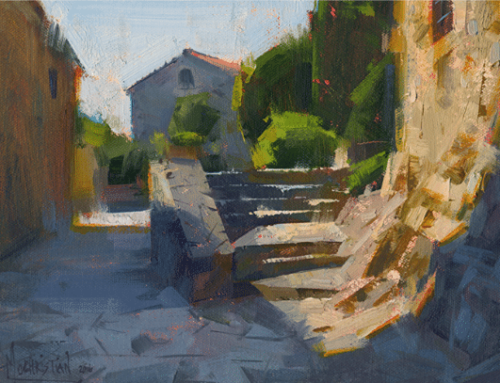MAaking money as an artist is not about making whatever you want and expecting to be rewarded with money.
Forget about the memes wanting you to believe it’s not fair to ask artists to donate work to a worthy cause such as auction for a local non-profit. No one is asking you to “work for free” – that’s just insecurity talking. There is nothing wrong with allowing your work to do an ounce of good in the world without expecting anything in return.

This is just an opinion piece, and you have every right to disregard and disagree. But I say seek out every local opportunity to show your work in person – of course consider and make use of social media, online stores and galleries, free contests, and such, but show your work in person too.
Always be looking for the next opportunity to exhibit. Donate a piece to the Chamber of Commerce office or even better the soup kitchen, join your local artist association (where you can make connections with other artists and ask them for advice), go ahead and enter art association shows (but don’t ever pay to show your work if you can avoid it).
In fact, if you’re just getting started, it makes sense to reach out to all kinds of places and ask if you can simply display your art – your local library is a great place to start – with price tags or without. Use your work to brighten up church basements, cafes, restaurants, public parks, empty storefronts and doctors’ offices. Independent retail stores, craft fairs, and festivals are also good places to show your art, sign folks up for your newsletters, and generally get noticed. Priorities: Your goal here isn’t to sell art. It’s to get your work into the world (and in doing so, to establish yourself as an artist).
Once you begin getting invitations to show your work, accept them. Don’t consider something beneath you or not worth your time because you don’t think it will make you enough money. Instead, as a rule look for ways to do good and benefit the largest number of people in any situation.
Besides, you never know who will see your work or what connections will eventually lead to a sale or even multiple sales.
I don’t know anyone who has ever regretted showing work somewhere (unless it cost them money to do so) much less donating to charity auctions or even just giving work away to people they like. Artists often have folks contact them years after wanting to buy a piece they just saw online or to commission something big, perhaps to furnish a new home or purchase a special gift, attend a workshop or a class, etc.
Post your work to the web and again, expect nothing in return. Avoid using “watermarks” on web images unless you want to look like someone who sweats the small stuff. Even technically it doesn’t make sense: digital web files of your work are too small to be printed out and sold as posters at Walmart anyhow. More importantly, obsessing over ownership or copyright law will make you look unprofessional.

Joos van Craesbeeck, The Coin Collector, 17th c. Oil on oak panel
Understand that the only people who are going to “steal” your work are people who would never have bought it anyway. If you think about it, you aren’t losing anything that you actually have or had if someone saves an image of your work or even reproduces it as a cheap print for sale in Taiwan. Rest in the confidence that if you’re producing high-quality paintings and always seeking the next opportunity to show them, nothing can ever take the place of your originals (or indeed, your next painting).
Generosity of spirit tends to attract good things into your life. If someone knows you’re an artist and wants you to design a logo for them for free, that’s different. That’s not benefiting the world, just helping a person line their pockets, therefore it’s actually commercial work, and you decide whether and how much to be paid for that.
But making art is not about making money (there are far more lucrative ways to do that, and some even come with health insurance!) A better way to think of it is: A healthy art career should be about maximizing mutually beneficial relationships between you, your work, and the world.
Do that consistently, and you won’t have to worry about “working for free.”




